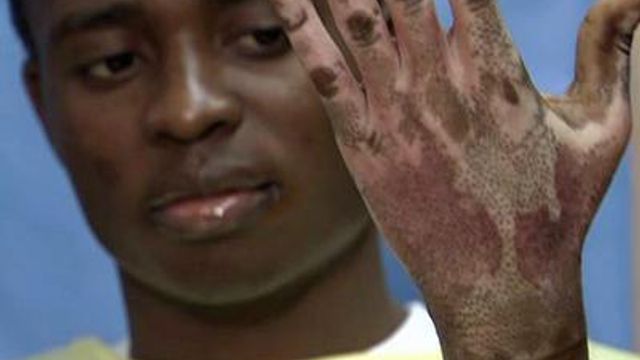Haitian burn patients at UNC share stories
A month ago, Eric Louis, 48, was riding home from work in a taxi, passing a gas station near Port Au Prince, Haiti, when a 7.0-magnititude earthquake struck.
Posted — Updated“The gas station exploded and the car also caught fire,” Louis said on Friday through an interpreter.
Louis and two others are being treated at North Carolina Jaycee Burn Center at UNC Hospitals in Chapel Hill.
After the quake, Louis said he crawled out of the wrecked cab and stepped over dead bodies in the streets before reaching a hospital, which had no doctors.
He managed to call his wife hours later. She found him and carried him 10 miles to their destroyed home. She spent seven days caring for him with just water and Vaseline at home. Louis was eventually transported to Florida for treatment.
On Jan. 26, Louis was among four burn patients from Haiti to be transported to North Carolina. His wife, Evita, accompanied him on the trip.
Three people were treated at the Jaycee Burn Center. The fourth patient was at the Wake Forest Baptist Burn Center.
Jinel Masena, 23, who was among the patients brought to the Jaycee Burn Center, remembers the earthquake shaking the metals factory where he worked. He said some sulfuric acid fell on him during the quake.
“There is no such thing as a small burn injury and particularly if it took two weeks to get care,” Jaycee Burn Center director Dr. Bruce Cairns said.
Cairns said delayed care placed the patients at greater risk of infection.
All have had skin grafting surgery and Louis will require several more procedures.
All three burn patients hope they, along with their families, can remain in North Carolina during and after their treatment. They have no homes to return to in Haiti.
• Credits
Copyright 2024 by WRAL.com and the Associated Press. All rights reserved. This material may not be published, broadcast, rewritten or redistributed.






